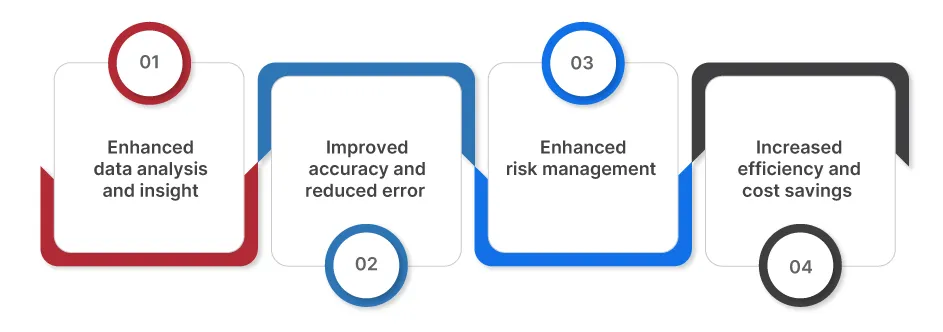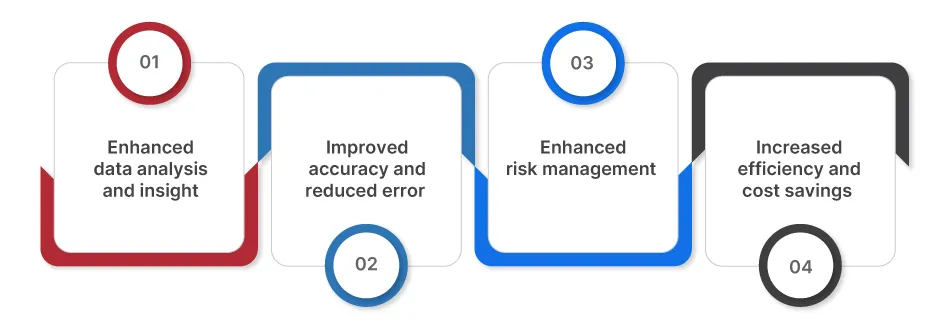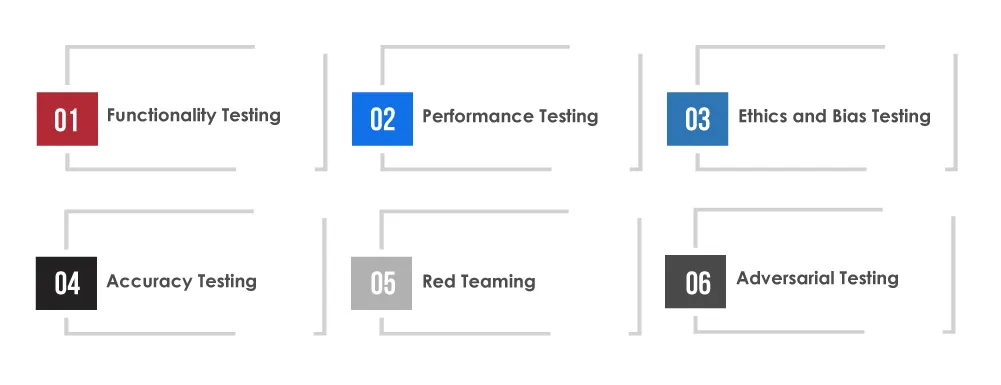Table of Content
- Role of AI in Business Decision-Making
- The Risks of Trusting Unverified AI
- Top AI Disasters That Could Have Been Prevented with QA
- Role of QA in Developing Reliable AI Systems
- How can Tx Help Ensure Reliability of Your AI Systems?
- Summary
The AI market has exploded in the last couple of years, with 85% of organizations using AI applications in their daily operations. From automating complex workflows to delivering AI-driven customer experiences, Artificial Intelligence enables businesses to reach new levels of innovation, growth, and efficiency. As AI becomes deeply involved in business processes, its limitations and challenges have also come to light. In fact, 68% of organizations using AI face performance, reliability, and security issues, thus raising concerns over AI trust. It is alarming that artificial intelligence is becoming a core aspect of businesses.
With AI becoming a driving force behind industry operations, there is a growing demand to improve its quality. One thing is sure: AI can’t be trusted without proper Quality Assurance (QA).
Role of AI in Business Decision-Making
Artificial Intelligence is becoming a key component in numerous technological advancements. Whether it’s Meta, ChatGPT, virtual assistants, or reinforcement learning, AI solutions are becoming integral to industries. AI is helping enterprises improve their decision-making by automating data analysis, providing insights, and identifying patterns that are primarily difficult for humans to spot. Businesses can anticipate market shifts, optimize operations, and manage risk, leading to strategic planning and achieving competitive advantage. Here’s how AI is improving decision-making:
• Enhanced data analysis and insight
• Improved accuracy and reduced error
• Enhanced risk management
• Increased efficiency and cost savings
From healthcare to finance, organizations are incorporating AI-driven solutions into their services and products, making QA a necessary process in the development cycle.
The Risks of Trusting Unverified AI
With most changes in the digital space driven by AI, trust becomes critical. Although AI has immense potential to enhance productivity and decision-making and drive innovation, trusting unverified AI can cause severe damage across various domains. Leveraging unverified AI models without thorough fact-checking may generate inaccurate and misleading information. This can influence public opinion, academic work, and even policy decisions.
Secondly, if AI systems are trained on biased data, they can perpetuate or exacerbate existing inequalities. Without any audit, AI can probably discriminate based on demographics or gender and reinforce harmful stereotypes in image or language generation. Just imagine what unfair decisions in the legal or healthcare industry can result in. Trusting unverified AI can open an attack surface for deepfakes and spoofed content to deceive users. AI models that are not tested can be hacked or manipulated, resulting in dangerous outputs.
Top AI Disasters That Could Have Been Prevented with QA
Racial Bias in the UK Passport Verification Process
AI experts often overlook or fail to recognize the biases we humans have toward behaviors, demographics, color, and culture. This became apparent when the UK’s online passport application processing service AI bias issue came into light in late 2020. It was noticed that darker-skinned users were getting their photos rejected more often than lighter-skinned users. The service also used offensive language when explaining the reason for the rejections. As a result, the applicants were distraught because of this situation.
McDonald’s AI-enabled Drive-thru Blunder
After collaborating with IBM to leverage AI for handling drive-thru orders, McDonald’s shut down this process in June 2024. The reason? A series of social media posts showed the frustrated and confused faces of customers trying to get the AI to understand their orders. One video showed two people pleading with the AI to stop adding Chicken McNuggets to their orders, eventually reaching 260. Finally, on June 13, 2024, McDonald’s ended its partnership with IBM to shut down the AI-enabled drive-thru test run in its 100 restaurants.
iTutor Group’s AI Rejecting Applicants due to Age Factor
In August 2023, iTutor Group (one of the leading tutoring companies) had to pay $365,000 to settle a lawsuit imposed by the US Equal Employment Opportunity Commission (EEOC). According to the federal agency, the company’s AI-powered recruiting software automatically rejected female applicants aged 55 and older and male applicants aged 60 and older. They stated that more than 200 qualified applicants were rejected due to the biases in AI software.
Role of QA in Developing Reliable AI Systems
Testing of AI is crucial because these systems often work within data-driven, highly complex, and dynamic environments. The slightest error can result in significant losses and a negative business impact. For instance, an AI-enabled fraud detection mechanism must avoid false alarms to prevent UX disruption, or a customer service chatbot must analyze, understand, and respond precisely to user queries.
Moreover, today’s AI faces challenges in deciding whether a task is ethical or not. It also lacks the ability to make the right decisions, which is unique to human intelligence. This means the responsibilities lie in the hands of QA experts to prevent AI from running amok. Testers must define boundaries within which an AI system/solution/service/algorithm should operate and monitor its behavior regularly to prevent breaches. As AI is being implemented across industries like telecom, medical sciences, manufacturing, retail, and others, deployment challenges are bound to occur. There are endless possibilities and dynamic scenarios related to attacks that enterprises should never ignore the criticality of testing for the success of AI-based solutions. There are different types of testing to ensure the reliability of AI systems, such as:
Functionality Testing:
Involves validating AI systems’ behavior under predefined conditions. QA teams check the outputs for given inputs, follow logical workflows, and ensure AI integrates with other systems smoothly.
Performance Testing:
AI systems must respond quickly and efficiently in different load conditions. QA teams identify bottlenecks and performance issues by checking for latency, scalability, throughput, and resource consumption.
Ethics and Bias Testing:
Prevent AI systems from propagating unfair biases or making unethical decisions. QA engineers simulate scenarios across user profiles to detect unethical behavior and impose ethical standards for bias-free decision-making.
Accuracy Testing:
Assess the correctness and precision of the AI’s predictions or recommendations. This testing ensures high accuracy in AI decision-making, whether it’s about diagnosing medical conditions or forecasting retail demand.
Red Teaming:
Involves simulating real-world attacks or misuse cases to identify AI system vulnerabilities. Red teaming identifies gaps by thinking like malicious actors to expose flaws that standard test cases might miss.
Adversarial Testing:
It is a key to building smart and secure AI. QA teams use inputs to deceive the AI and expose its blind spots. This helps identify areas where the model can be manipulated, ensuring the system is resilient against malicious attacks.
How can Tx Help Ensure Reliability of Your AI Systems?
As AI implementation accelerates, organizations need a robust QA solution to ensure their AI systems function ethically, responsibly, and accurately. At Tx, we understand the gaps affecting AI reliability and trust. With our AI Quality Engineering and years of industry experience, we systematically validate your AI models, enhance data integrity, ensure compliance, and mitigate biases. Our approach ensures your AI solutions are scalable, reliable, and trustworthy. Our services cover:
AI Advisory:
We guide you through AI adoption and organizational transformation for AI readiness. Our services include strategic AI planning and maturity assessments to ensure optimized AI-driven operations.
Large Models Testing:
With years of QA data, advanced tools, and in-house accelerators (NG-TxAutomate, Tx-SmarTest), and on-premises experiences, we ensure your AI delivers correct outputs in accordance with compliances.
QE for Agentic AI:
We validate Agentic AI workflows for accuracy, reliability, and efficiency across security, accessibility, performance, and UX/CX testing.
QE for AI:
We validate models like LVMs and LLMs by conducting performance, bias, and security testing to ensure your AI systems perform optimally, ethically, and securely.
AI Governance Frameworks:
We assist you in developing ethical AI policies, regulatory compliance frameworks, and bias detection models. This will ensure your AI systems follow data privacy, security, and ethical standards while facilitating responsible AI deployment.
Summary
Quality Assurance (QA) helps enterprises ensure their AI systems are safe, reliable, and fair. AI can make harmful decisions, show bias, or fail in real-world scenarios without proper testing. QA helps define clear boundaries for AI behavior, identify issues before deployment, and maintain ongoing system integrity. It also supports ethical use, performance checks, and security testing, helping businesses build trust and confidence in their AI-driven solutions across various industries. Tx can help you by offering specialized QA services, from validating large models to testing for bias, security, and performance. We also help you build governance frameworks to ensure ethical and responsible AI deployment across industries. Contact our experts now to learn more about our QA services for AI systems.
The post Why AI Can’t Be Trusted Without QA first appeared on TestingXperts.
Source: Read More




![How to focus on building your skills when everything’s so distracting with Ania Kubów [Podcast #187]](https://devstacktips.com/wp-content/uploads/2025/09/f7c52449-77f9-4fa4-bbd5-34c3773658dd-6kiwIT-450x253.png)
